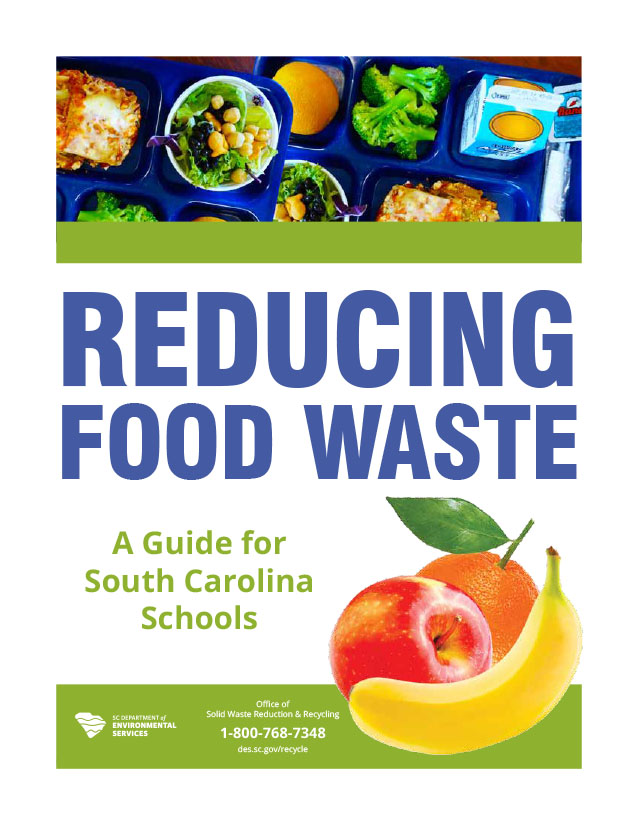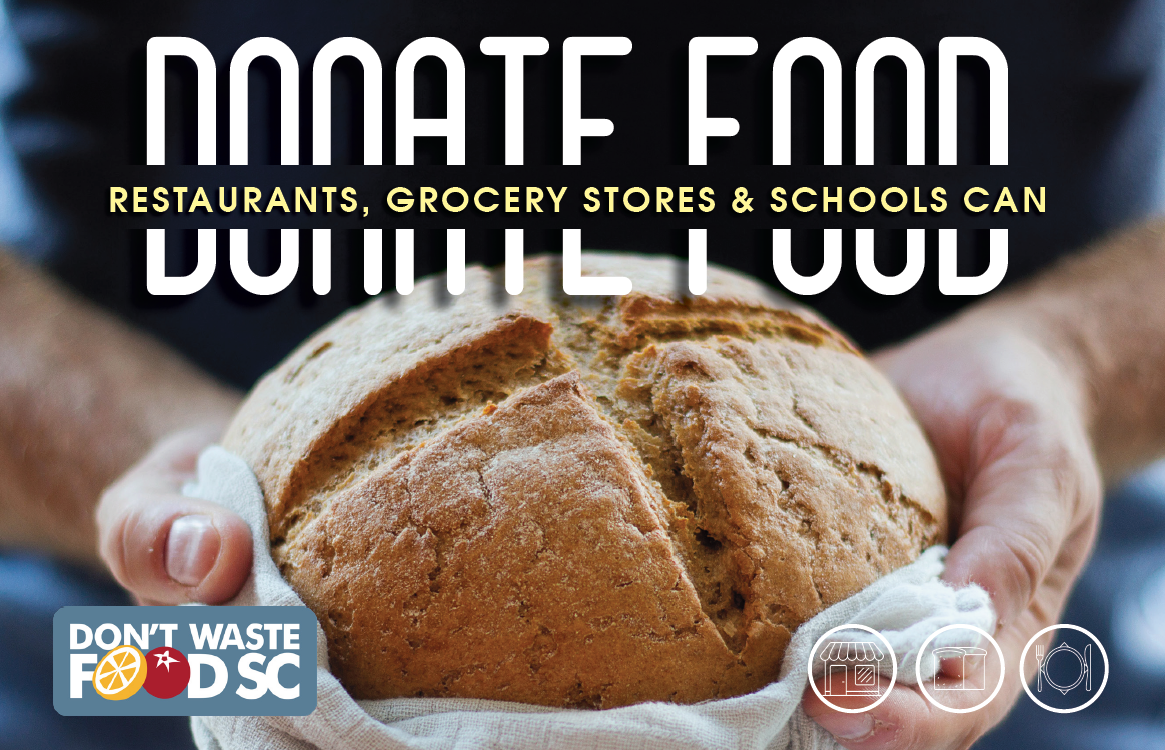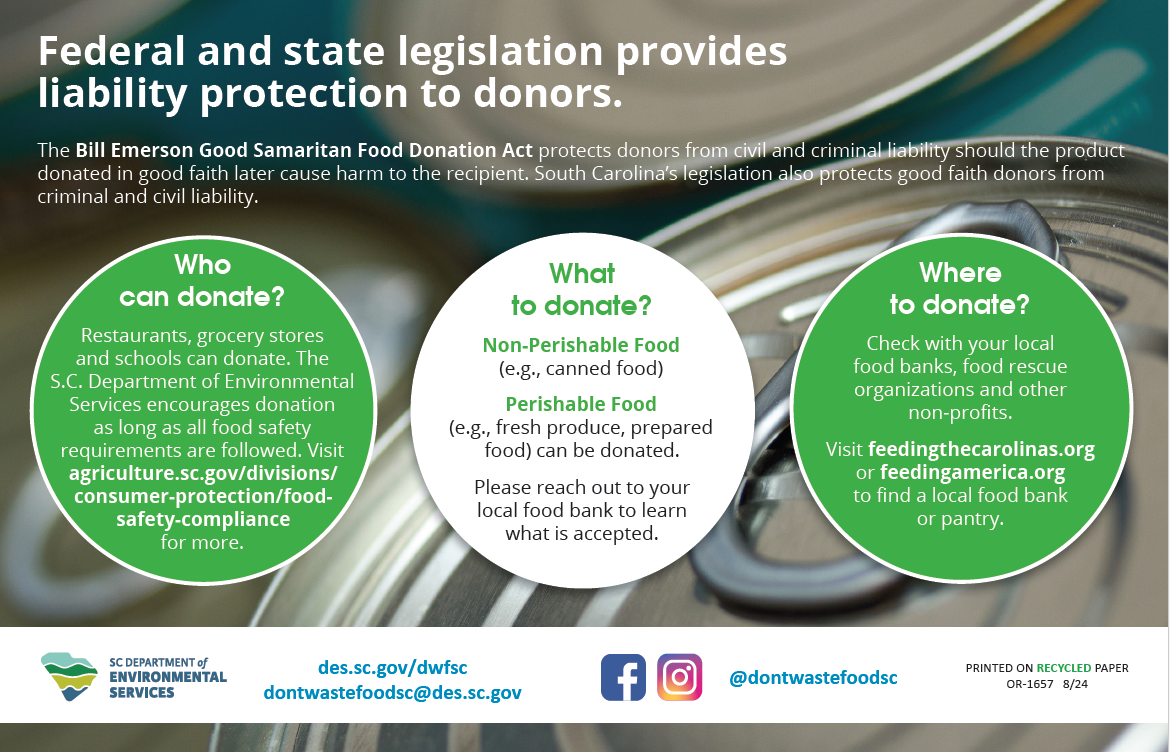Schools generate waste. Lots of it. In fact, SCDES conducted a study to determine the amount and composition of waste that schools generate. The report showed:
- Schools create – at a minimum – nearly 400,000 pounds of waste every day;
- Unwanted food is the No. 1 or No. 2 component of a school’s waste stream; and
- The majority of waste generated at schools could be recovered through prevention, recycling, and composting.
Schools have multiple options to address wasted food. The cafeteria can be another classroom. Valuing food and managing it properly is a life-long lesson.
Quick tips to prevent & reduce food waste in K-12 schools

- Download: Reducing Food Waste - A Guide for South Carolina Schools
- Measure it. Conduct a food waste audit in your school, then develop and implement appropriate reduction strategies. Have students help. Guide to Conducting Student Food Waste Audits
- Participate in Smarter Lunchrooms. Smarter Lunchrooms is a nationwide movement encouraging students to select and eat the healthiest food. When kids are taught to eat more fruits and vegetables, it leads to healthier eating and less food waste.
- Use Offer versus Serve (OVS). The U.S. Department of Agriculture (USDA) recommends the OVS strategy, giving students the flexibility to make healthy choices and to decline some of the food offered while assuring the meal is still reimbursable.
- Set up a Share Table. Students place specific food and beverage items that they choose not to consume on a designated table or cart. This provides an opportunity for other students to take the items at no cost. This strategy, encouraged by USDA, helps feed hungry children and prevent wasted food.
- Donate. No matter how many waste reduction practices are in place, there will still be uneaten food. Since 2012, USDA has encouraged food directors to redistribute unopened milk, bags of carrots, whole fruit and other items to community members (often within the school) in need.
- Compost. Set up a small composting program or school-wide program with an outside vendor. Composting Guide for Schools
Quick tips to reduce food waste in colleges/universities:
- Measure it. Talk with your food service vendor. Conduct a food waste audit or "weigh the waste" event. Have students help develop and implement appropriate reduction strategies in coordination with food services.
- Reduce plate waste. Work with your food service vendor to shift to trayless dining, smaller plates, and reusable take-out containers.
- Donate. Start a volunteer food pantry for students - shelf stable items are a good starting point. Donate other items to a local food bank or shelter. Is it legal for a college/university to donate food? YES!


- Compost. Contract with a commercial composting vendor or work with facilities/sustainability staff to start an on-site program.
Benefits:
- Feeding people, not landfills.
- Life-long lessons for students.
- Potential cost savings.
- Provide quality compost for your school garden.

